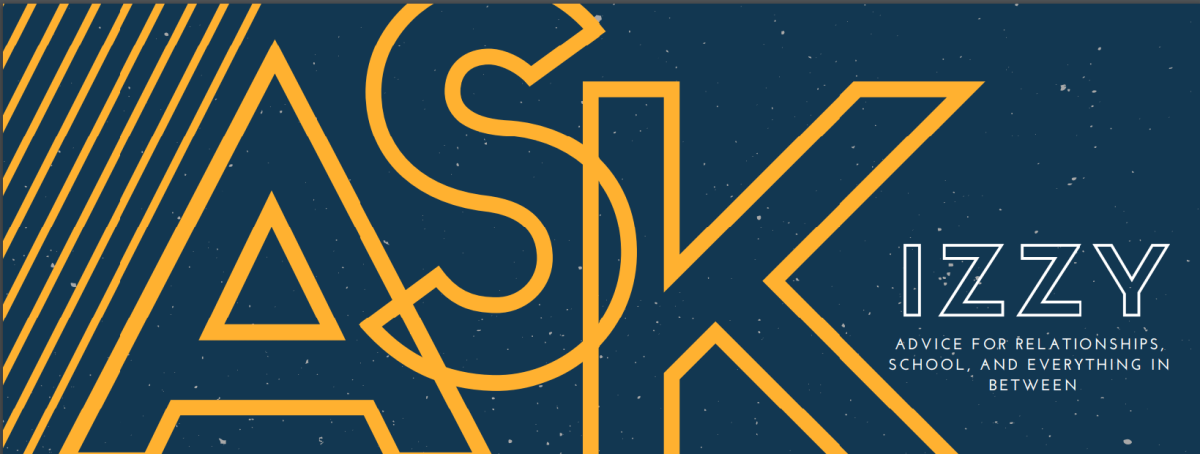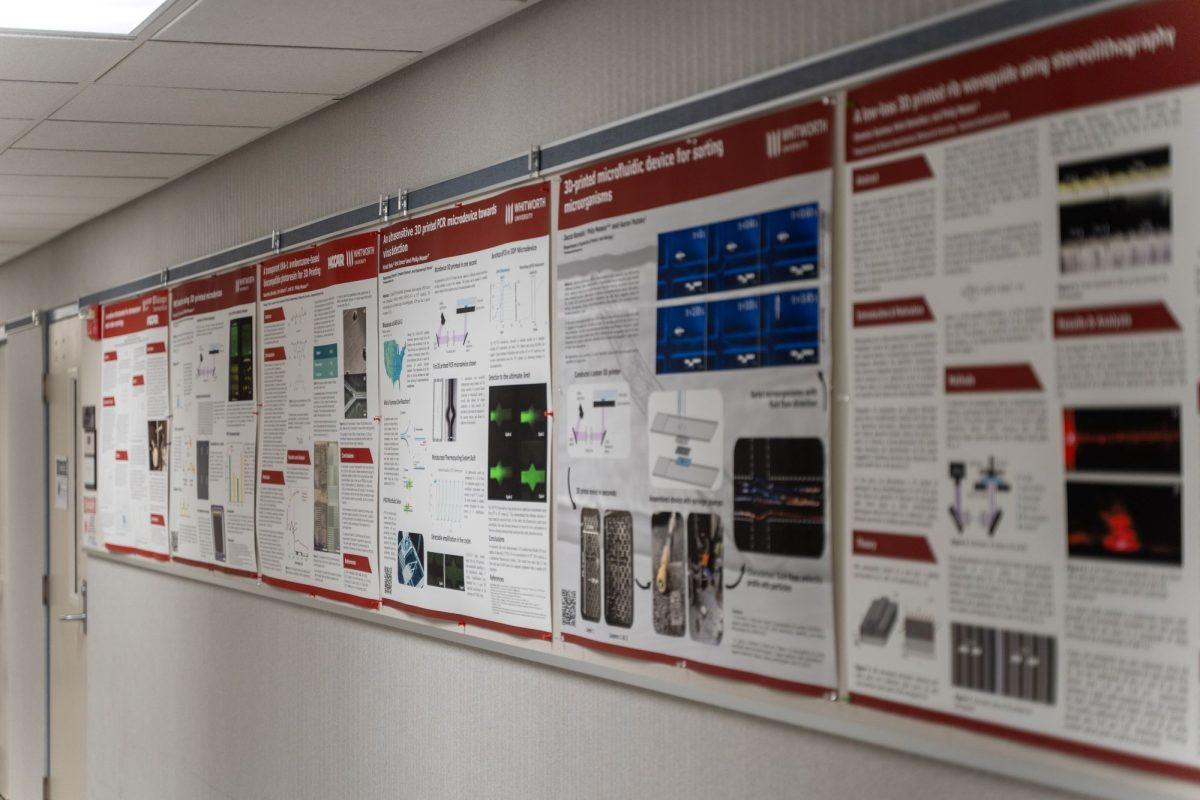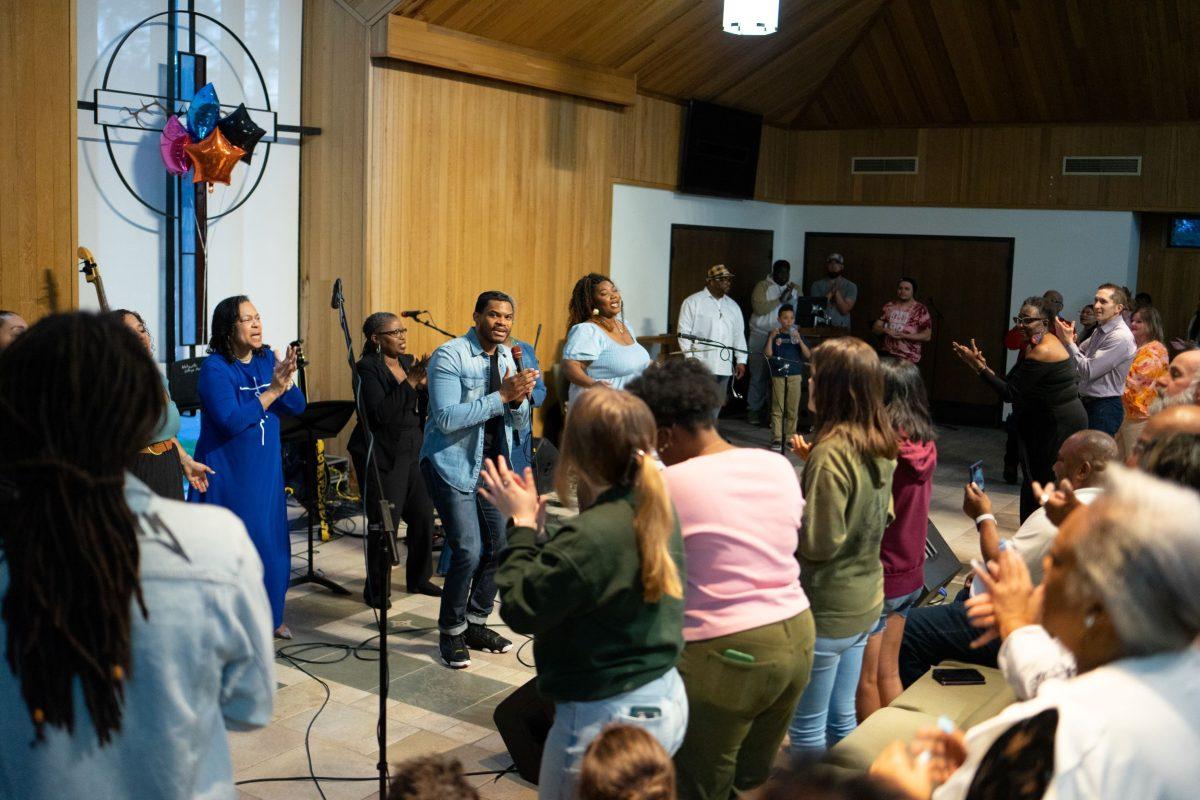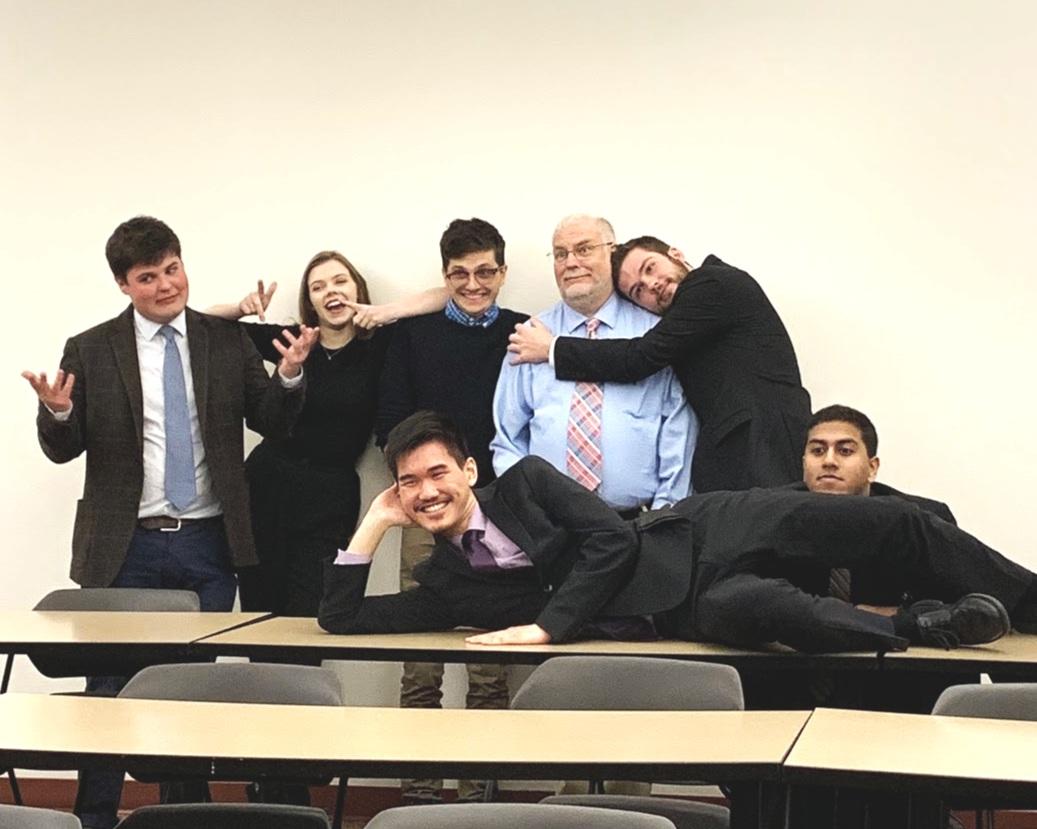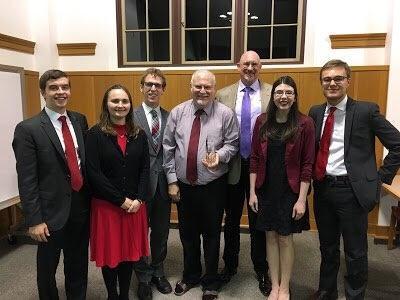
In light of recent news stories about the offensive use of blackface, Whitworth professor of history Dale Soden, P.h.D. gave a lecture on the racist history surrounding the topic and its current relevance. The lecture and discussion was held in Weyerhaueser 111 on Feb. 25, with approximately 100 people filling the chairs and standing space.
“I think the topic is always relevant in the sense that it forces us to confront a dark chapter in American history regarding race relations. In particular, the Blackface minstrel genre helps us realize how devastating the racial stereotypes have been in our history. It helps us see how cruel and demeaning these images and characters have been,” Soden said.
Dr. Kathy Lee, professor of political science, opened the lecture by relating her own experiences in college to Virginia governor Ralph Northam’s recently resurfaced medical school yearbook photos, in which Northam admits that he appears as one of two students posing in blackface and KKK attire.
“My own alma mater, Wake Forest University, is having to confront the issue of blackface,” Lee said, “Past yearbooks include photos of students in blackface and in KKK outfits. The vice president of admissions has had to apologize for appearing in front of a Confederate flag when she was a student in 1982. As a Yankee, as I was called in college, I was shocked when I was a student at Wake Forest in North Carolina when I saw frat brothers in Confederate soldier uniforms.”
Soden’s lecture began with a reminder of Whitworth’s historical relationship with race. Among these include positive moments, such as the addition of Ernie Tanner to the Whitworth football team in 1908 when he became the first African American football player in the Pacific Northwest. However, Whitworth’s use of minstrel shows and 1966 Klu Klux Klan references in the yearbook photos are also apparent. The 2015 women’s soccer team’s portrayal of the Jackson 5 in afros and blackface makeup also surfaced in his introductory remarks.
“The material that Dale Soden presented is really important,” said sophomore Evan Shenk. “Whitworth has been a part of racism in the world just as much as any other institution or community, and as such, the administration and students alike need to work to find where it still perpetuates and grows around us. Blackface was a part of the contribution to racism that was made on campus, and we need to understand why that is a problem, seeing as students used blackface again only a few years ago.”
“The more we can lean into uncomfortable truth, the better,” said sophomore Laura Waltar. “Hiding our past is an act of fear while stepping up to stare at it plainly is an act of courage.”
After this historical review, Soden played several video clips that delved into the use of blackface among white actors in the 1830s, and then later on by black actors in the 1860s. According to Soden, the audiences were curious about the black population and kept them in submission through these racist portrayals of perceived African American stereotypes.
“What you have is a mechanism for creating stereotypes that allowed white people to say that [they are] controlling the narrative and identity,” he said. “The power of racism is to perpetuate that dynamic.”
The last portion of the lecture was spent in discussion of Capital One commercials and their portrayal of black stereotypes by black actors, but not everyone in attendance agreed with the use of this example.
“For those attending the lecture who are new to the dialogue about race,” Waltar said, “I fear that they may have come away with an understanding that the beginning point is examining black actors as though they are perpetuating stereotypes.”
In an interview with Professor Soden, he acknowledged in retrospect that his use of the Capital One commercials was not a good choice to begin the discussion on stereotypes. He wishes he had used different examples.
“Cultural appropriation is a very complex topic,” freshman Drew Bair said. “As a musical composer, I see immense value in the blending of cultural influences and the borrowing of ideas from other musical traditions. However,…this lecture was [of] value to me as an artist, because it challenged me to think more deeply about how to ensure I am respectful of other cultural traditions when I let them influence my artistic output.”
After the discussion finished, some students and faculty left with hopes of continuing to have dialogue on the matter.
“The students and faculty at Whitworth University need a robust and ongoing medium of discussing race, and not one person must be left out of the discussion,” said Shenk. “We are all one people, with one need, and one heart. We are being starved of the love we should have for each other by a world built specifically to antagonize that.”
Waltar also hopes for future opportunities to discuss and understand her role as a participant in making change.
“Not all of our attempts to achieve racial justice are full victories,” she said. “We inevitably slip up along the way, recognizing our biases and ignorance as we go. My advice for any white ally is to stay in the fight. Privilege looks like leaving the conversation of race when it gets hard or when we don’t know if we are doing it right. Being an ally looks like admitting our areas of fault and unintentional harm, seeking understanding, and trying again with the help of those around us.”
These students were not the only ones present who hoped for future opportunities to continue discussions about blackface and race in general.
“I think it was clear from questions and discussion that we need to have a pop up lecture part two, part three, etc. for this issue and others dealing with race,” Lee said. “Dale and I have already talked to some faculty and staff about a part two which would focus on contemporary debates on blackface and other issues.”

